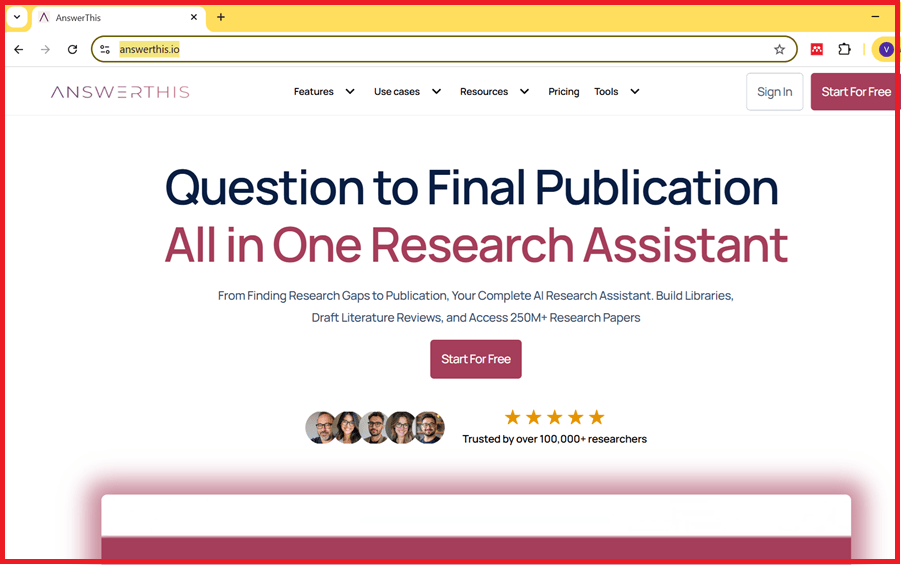Finding and organizing the right research papers can often take hours — sometimes days. What if you had an assistant that could do part of this for you: finding relevant studies, summarizing them, and even giving you proper citations?
That’s what AnswerThis.org (also accessible via answerthis.io) does. It’s an AI-powered research assistant that helps you ask a question or describe a topic — and then gives you a detailed, referenced summary built from scholarly papers.
Using AnswerThis, you can:
- Get literature summaries with citations
- Identify research gaps — areas that need more study
- Save or upload papers in your own research library
- Export references in standard citation formats
It’s a great way to understand a topic deeply and save time when doing regular academic work or writing assignments.
You may wonder why QMed is introducing you to an AI tool that seems to make the Foundation’s work redundant.
Let us answer this — we stress that our work is even more important now.
We would like you to remember: while tools like AnswerThis are exciting, they also come with certain limitations:
- They may not access papers behind paywalls (so you might miss important full-text studies).
- They do not include results from paid databases such as Embase, Scopus, or Web of Science.
- The sources they search are not always disclosed — meaning you can’t be sure of full coverage.
So, while AI research tools can be excellent for general exploration and quick reviews, for in-depth research or systematic reviews, it’s vital to combine them with traditional searching methods.
For in-depth and systematic work, here’s what QMed suggests:
a) Start with regular databases — PubMed, Embase, and others — using structured search strategies that ensure completeness and transparency.
b) Then use AI tools like AnswerThis to find additional or recently indexed publications or to understand a topic more broadly.
Think of AnswerThis as a great add-on to both systematic online searching as well as “hand searching.”
And here’s where QMed’s training makes a difference: when you understand how databases are structured, how to use MeSH terms, Boolean logic, and filters, you’ll be able to give AI tools like AnswerThis – much more focused and meaningful prompts.
In short, AI can amplify your skills — but only if you know how to search smartly.
And that’s what QMed helps you master.
Check out www.qmedcourses.in
ResearchTools #LiteratureSearch #SystematicReview #AIinResearch #QMed



